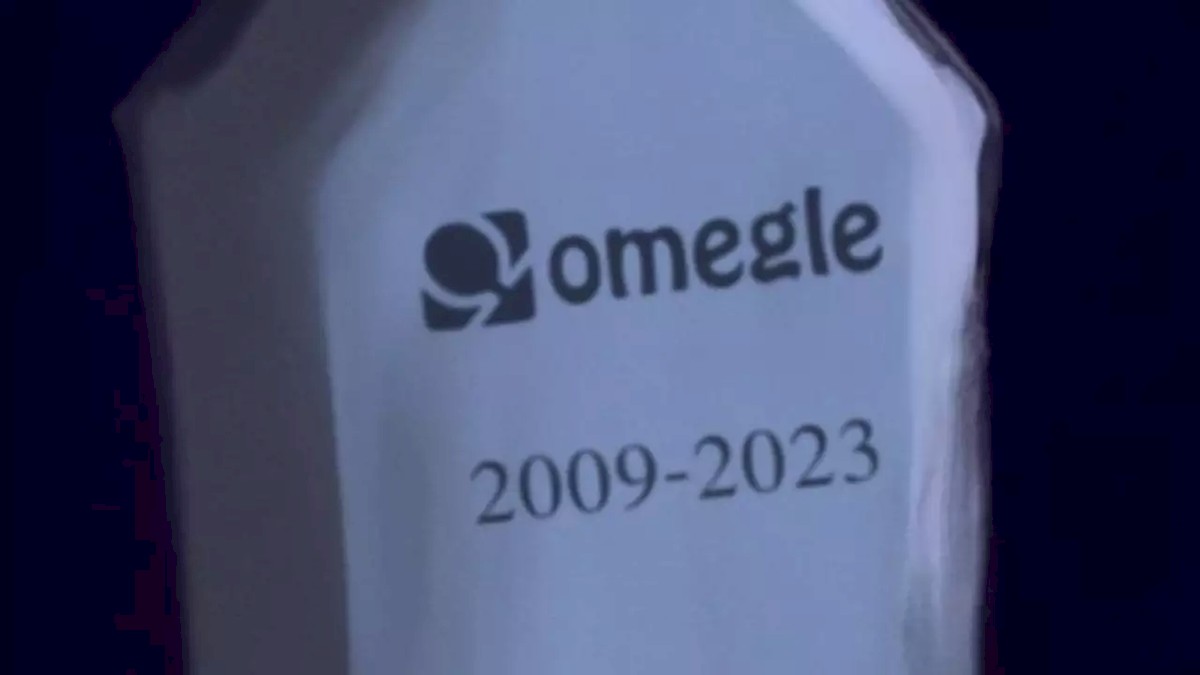We say goodbye to Omegle after 14 years

On the internet, few platforms have left as lasting an impression as Omegle. For 14 years, this online chat haven has connected strangers from across the globe, fostering a unique digital camaraderie.
However, the digital realm is not impervious to change, and recently, the founder, Leif K-Brooks, dropped a bombshell - Omegle shut down after 14 years.
This decision marks the end of an era for the platform that thrived on spontaneity and anonymity.
Leif K-Brooks has announced the Omegle shut down decision with the following words:
''Unfortunately, what is right doesn’t always prevail. As much as I wish circumstances were different, the stress and expense of this fight – coupled with the existing stress and expense of operating Omegle, and fighting its misuse – are simply too much. Operating Omegle is no longer sustainable, financially nor psychologically. Frankly, I don’t want to have a heart attack in my 30s''.

Why did Omegle shut down?
Leif K-Brooks' statement elucidates the pivotal factors that led to the closure of Omegle. The founder highlighted that the operational costs had become insurmountable, both financially and psychologically. This revelation prompts a closer examination of the intricate challenges involved in managing a platform of Omegle's magnitude.
Running a platform that facilitates anonymous online interactions comes with its own set of challenges. The constant need for stringent content moderation to ensure user safety and prevent the dissemination of harmful content imposes a significant psychological toll on the team behind Omegle.
Simultaneously, the financial burden of maintaining and upgrading the platform in line with evolving digital landscapes became unsustainable.
Omegle shut down news underscores the perpetual struggle of platforms to strike a balance between user freedom and safety. The prevalence of abuse claims and the perpetual challenge of preventing the spread of harmful content ultimately contributed to the difficult decision made by Leif K-Brooks.

What are the best Omegle alternatives of 2023?
Omegle was a popular video chat platform that connected random strangers for spontaneous conversations, and it has been in the spotlight for both its positive and negative aspects.
With Omegle shut down decision, users are left to look for the best Omegle alternatives the internet has to offer. Here are our recommendations:
- Chatroulette: Chatroulette is one of the oldest and most popular Omegle alternatives. It is also one of the simplest to use, as it only requires you to click a button to start chatting with a random stranger
- ChatRandom: ChatRandom is another popular Omegle alternative that is known for its large user base. It also offers a variety of features, such as the ability to filter matches by gender and country
- Shagle: Shagle is a newer Omegle alternative that is quickly gaining popularity. It is known for its high-quality video chat and its strict moderation policy
- EmeraldChat: EmeraldChat is a great Omegle alternative for people who are looking for a safe and secure chat experience. It uses facial recognition technology to verify users' identities and does not allow any inappropriate content on its platform
No matter what your needs are, there is sure to be an Omegle alternative that is perfect for you.
Read also: Anonfiles shutdown, leaving users in suspense.
As Omegle bids farewell, it leaves behind a legacy of spontaneous connections and digital adventures. Leif K-Brooks' decision, while undoubtedly challenging, reflects the harsh reality of managing an online space.
The closure of Omegle is a poignant reminder of the ever-shifting dynamics of the internet, where even the most iconic platforms must navigate uncharted waters.
Featured image credit: Omegle.
Advertisement


















On Shagle, I’ve found a sense of community with other adults, and the gender and location filters make it a much more customized experience than Omegle.
The problem with Omegle was not ‘trolls’ was Pedephiles… so what are you even talking about? Did you even research before commenting?… because it is obvious who would use a service like this where people get ‘matched’ and ‘talk to’ strangers.
But sure… trolls are the reason to close this site… oh and ‘freedom of speech’, which was not even true, technically if you got enough reports, they would ban your IP from the service, so if you go and ‘troll’ people with ‘freedom of speech’ you could get easily banned.
Talking about the real issue, which apparently ghacks didn’t want to touch, and apparently doesn’t even care if they even give you ‘alternatives’ = easier for predators to seek for a new service.
But what can a service which allows to randomly be matched with strangers bring? Elfs and unicorns dancing under the stars smiling and enjoying life? no, obviously human pedophiles.
You can find how a female sued Omegle because she was matched with a person who abused her for 3 years… but where were the parents too? why is people blaming Omegle and not the parents?
There are tons of Omegle streams, where they would easily find 13-16 years old in the platform… and then, where were the parents? their kids doing weird stuff, matching with strangers and somehow parents are not around?
oh wait… the problems are trolls not pedophiles or irresponsible parents, sorry, I forgot that! especially when the article doesn’t even talk about the dozen cases where Omegle and Pedophilia was brought in the same sentence, let’s just ignore the facts and move to some fantasy land of ‘trolls are the problem’… I wonder why the author of the article and the first comment, somehow didn’t talk about the big elephant in the room and actually promoted alternatives….
Oh wait, I can see the future where my comment will not be allowed in this site, because it would surely show the reality of the world and not ‘but it was a good service, it was just cost the reason of shutdown’.
Dude, the problem is not pedophiles (censorship or moderation on the Internet can’t solve this problem anyway), it’s irresponsible parents, but anyway you need therapy.
And, most importantly, you need to be banned from any services that involve social interaction with potential strangers on the internet. Because that’s what’s triggering your relapses.
A very timely article. Yesterday, I created an account with Nextdoor and immediately regretted having done so due to its “woke” policies. However, as pointed out in your article, a website like Solcial (which promotes freedom of speech) is plagued by trolls, who abuse their anonymity. Good with the bad and all that.
This is such a shame, I liked going there sometimes. There were nice conversations to be had if you knew where to look.